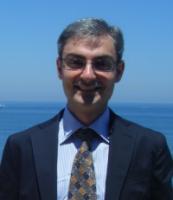Leone, Luca | Italy

Luca Leone is a Ph. D candidate at the Doctoral School on the Agro-Food System of the Catholic University of Piacenza, Italy. After attending classical studies, he received a three-year Bachelor degree in Law of National and International Public Organisations from the LUISS University in Rome. In December 2007 he graduated in Business Law with a J.D. magna cum laude from the LUISS University, discussing a final thesis in Food law. He has made an internship at the Ministry of Foreign Affairs (Rome) and at the Italian Ministry of Interior (Rome). After enrolling in the second level Master course of Consumer Law, in March 2011 he was appointed Teaching Fellow (course of Legal Philosophy) by the Catholic University of Piacenza – Law Faculty. His interests concern the legal regulation of science and technology, particularly in the field of the enabling technologies, the issues of scientific uncertainty and the law, the relationships between science and democracy.
Project at IAS-STS: Nanofood: the EU legislative framework for future of food
Scientific and practical innovations have played a significant role in transforming the production practices and products of agro-food systems over the past century. Nanotechnology represents an important and rapidly growing set of technologies being applied across the food system. A new range of techniques, processes and materials at the supramolecular level are at the early stages of development and research across all agro-food sectors, including agricultural production, food manufacturing and food packaging, but it remains a lack of data that address the characterization and safety of nanomaterials used in food. In light of this, an appropriate legal and regulatory oversight of nanotechnologies must be in place to adequately protect the environment, consumers, workers and society. This research project wants to contribute to a broader understanding by consumers of the issues associated with nanotechnology for food applications. My intention is, after mapping out salient features of emerging applications of nanotechnologies in the agro–food sector, to focus on the legal framework on nano-food in the EU, by analyzing all documents published up to now, and, finally, to restructure the regulatory debate on the food safety regime. A balance between hard and soft nanoregulation requires a dynamic, transparent and inclusive approach adapting to the evolution of the scientific knowledge, to ensure that the regulatory framework governing food is adequate to deal with the novel challenges posed by nanomaterials.
